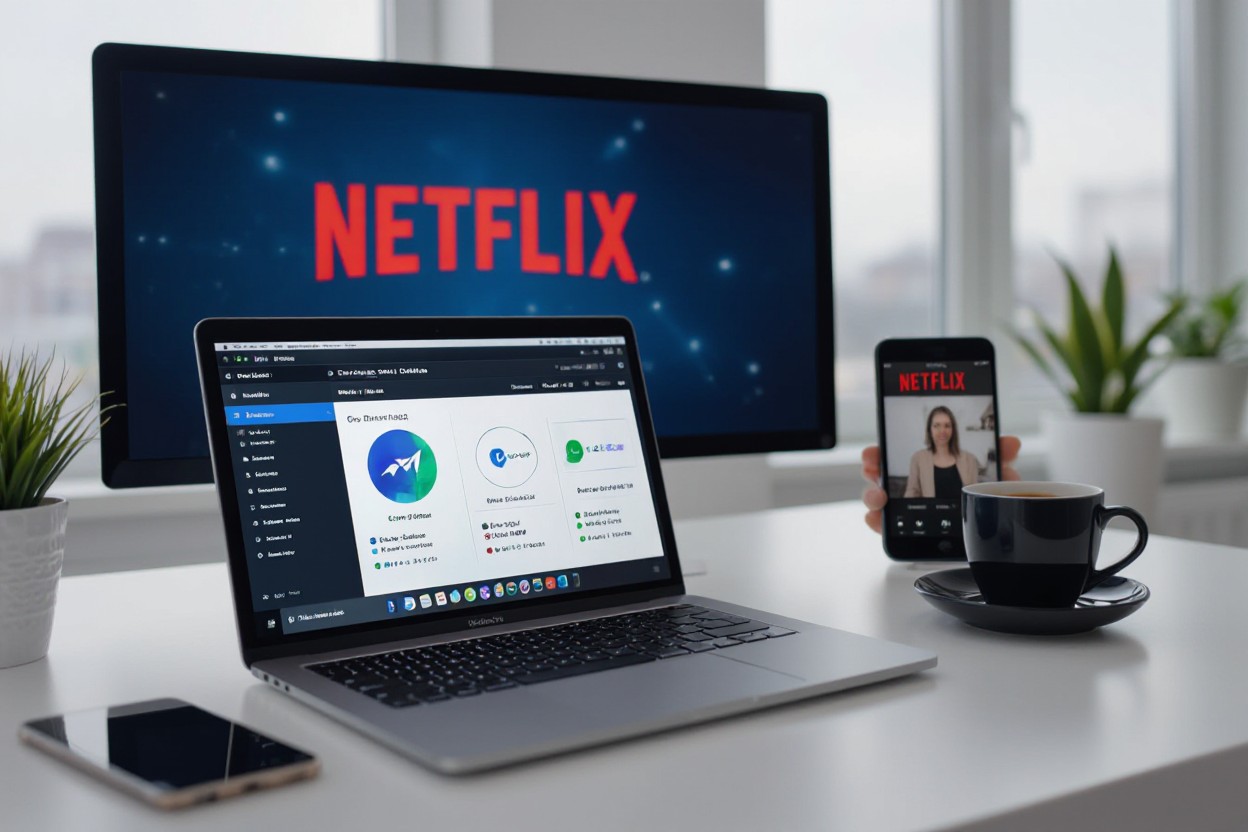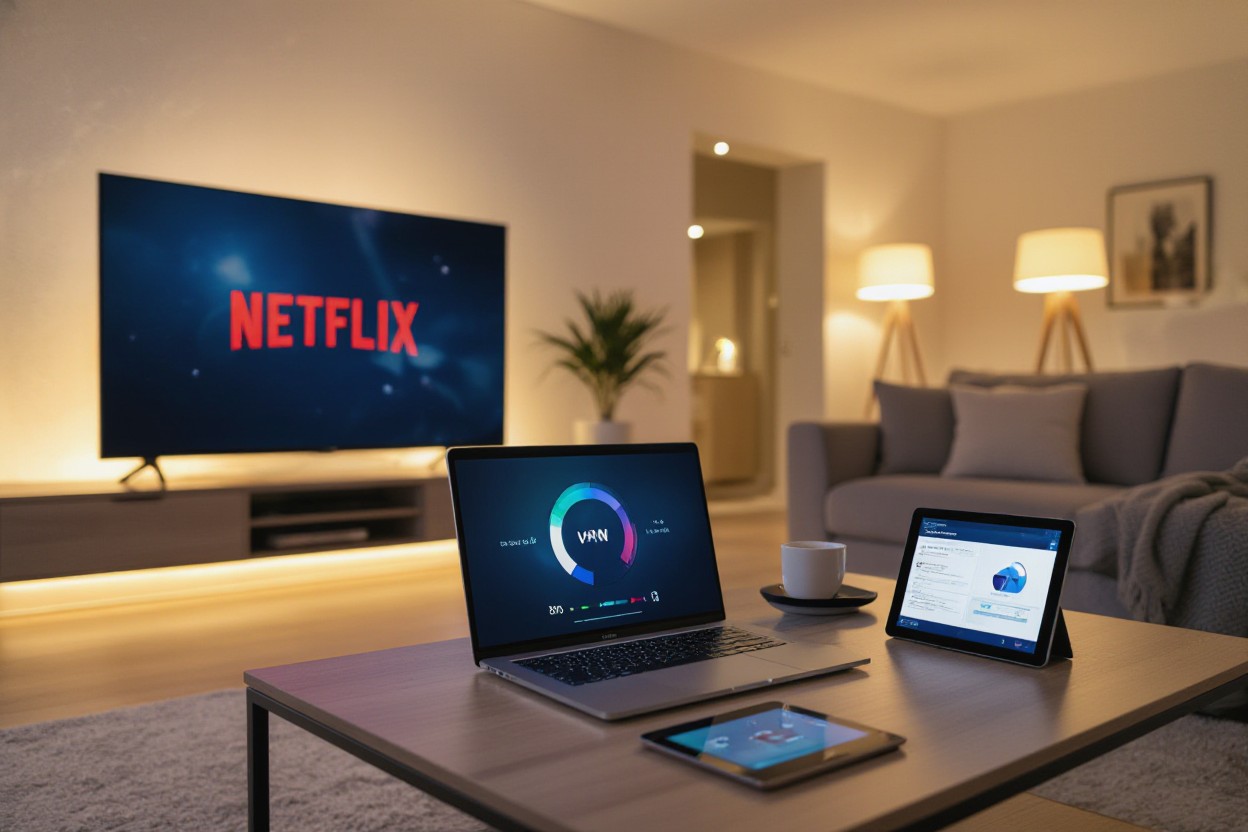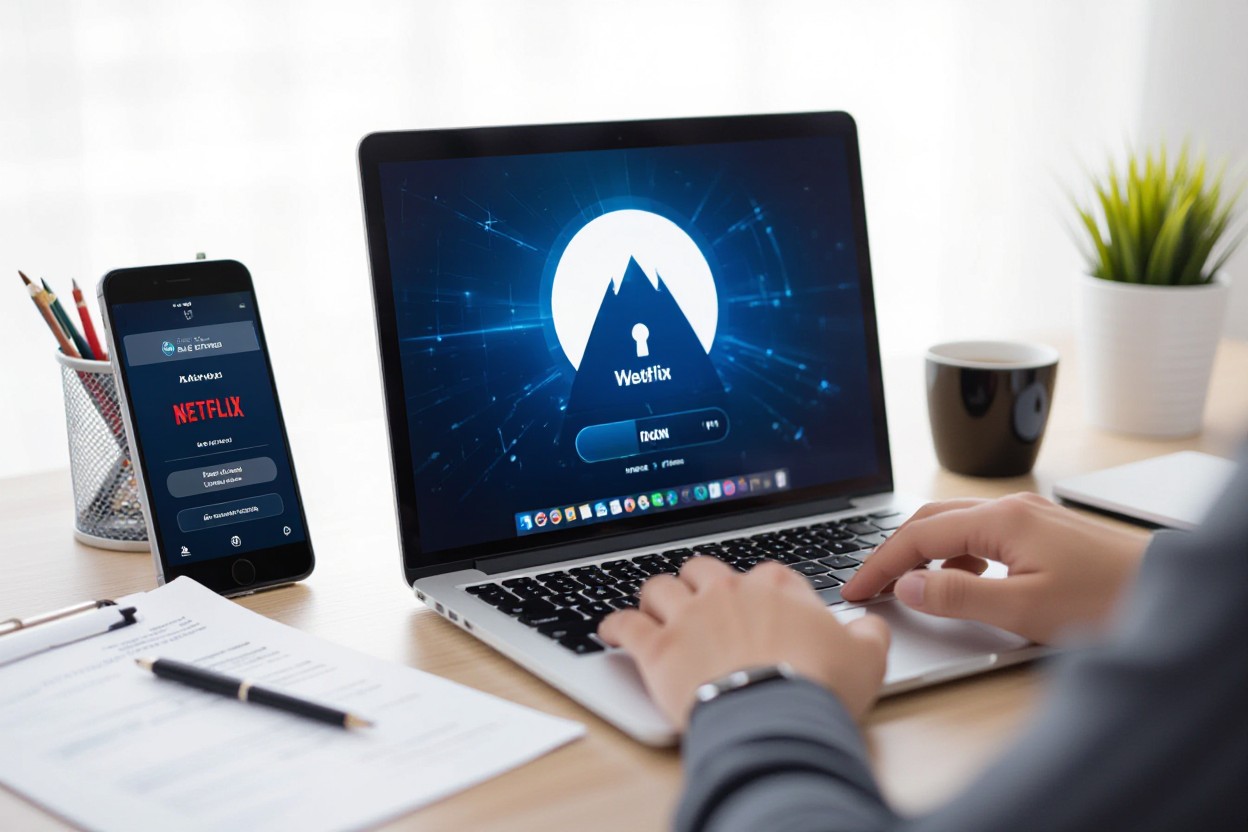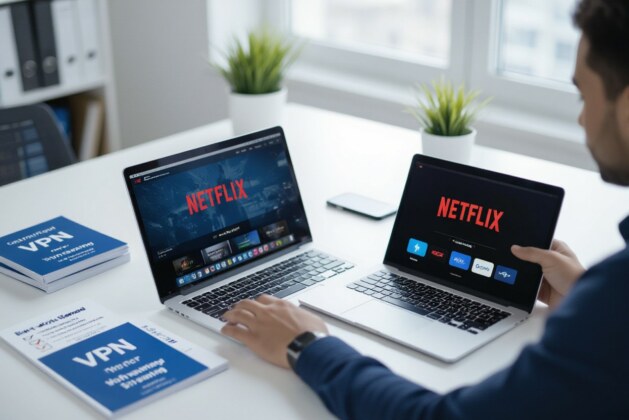Most people don’t realize how restricted Netflix content can be based on their location. When I first started using a VPN for Netflix, I struggled to find one that consistently worked without slowing my connection or getting blocked. In this guide, I’ll show you how to identify a VPN with fast speeds, strong encryption, and reliable access to Netflix’s extensive library. By following my tips, you can enhance your streaming experience while maintaining your privacy and avoiding common pitfalls many encounter.
Decoding Geographic Restrictions: Why Netflix Content Varies by Region
Netflix’s content library varies dramatically across countries due to geo-restrictions, which filter what you can watch based on your physical location. I’ve found that these restrictions are rooted in complex legal frameworks and business deals between Netflix and content owners, creating significant differences in available titles. Depending on where you’re streaming from, a show available in the U.S. might be missing entirely in Europe or Asia. Understanding these nuances helps you realize why simply having a Netflix subscription doesn’t guarantee access to the entire universe of shows and films.
The Netflix Library: Understanding Titles and Availability
The Netflix library comprises thousands of titles, but availability shifts depending on regional rights. For example, “Friends” is accessible to U.S. subscribers but was removed from the UK catalog for several years, only recently returning thanks to renegotiated licenses. Your access depends heavily on what Netflix is allowed to stream locally, with some regions receiving exclusive premieres while others miss out completely. Tracking these changes can often explain sudden disappearances or additions in your regional Netflix app.
The Role of Licensing Agreements and Regional Rights
Licensing deals govern what Netflix can show in each country, often limited by duration, exclusivity, or concurrent broadcasting rights held by third parties. I’ve seen classic shows locked out of certain regions because a local broadcaster owns exclusive streaming rights, forcing Netflix to withhold content to avoid breaching contracts. These agreements also impact premiere dates and content exclusivity, shaping the footprint of what subscribers experience globally.
Digging deeper, these licensing agreements are shaped by intricate negotiations involving multiple stakeholders—studios, regional distributors, and broadcasters—each vying to maximize their reach and revenue. Contracts may limit Netflix’s ability to offer content in certain territories to protect theatrical releases or regional TV deals, sometimes measured in multi-year windows. Take Disney films, for instance: they often debut on Disney+ in the U.S. but might be licensed to legacy networks in other regions, delaying Netflix access. This patchwork of negotiations explains why Netflix invests heavily in original content, bypassing these hurdles entirely by owning worldwide distribution rights.

Key Features to Evaluate in a Streaming VPN
Selecting the right VPN for streaming Netflix means weighing several key features that directly affect your viewing experience. Look for a VPN with high-speed servers to minimize buffering, a broad range of server locations for diverse content access, robust security protocols to protect your data, and advanced ability to bypass VPN blocks by Netflix’s detection system. Additionally, a VPN with user-friendly apps and responsive customer support can elevate your streaming without interruptions. Thou can’t underestimate how these features intertwine to create a seamless Netflix journey.
Speed and Performance: The Need for Seamless Streaming
Netflix demands a fast, stable connection to deliver HD or 4K streaming without hiccups. I look for VPNs offering high-speed, unlimited bandwidth that avoid throttling during peak hours. Services using optimized streaming servers and modern protocols like WireGuard can sustain consistent speeds above 100 Mbps, imperative for uninterrupted binge-watching. Thou need a VPN that won’t turn your Netflix nights into endless buffering sessions.
Server Locations: Importance of Diverse IP Options
Access to a wide variety of server locations across the globe lets you break geographic locks on Netflix’s content library. More servers mean you can switch IP addresses from different countries like the US, UK, Japan, or Canada to unlock region-specific shows. Thou want a VPN with hundreds or thousands of servers to avoid overcrowding and keep your options open.
Expanding on server locations, a VPN provider with over 1000 servers in 50+ countries typically offers the best chance to find working IPs for Netflix. This diversity helps bypass Netflix’s powerful geoblocking technology. Some providers even rotate servers regularly or maintain servers dedicated to streaming, further reducing the risk of IP bans and blacklists. Thou can explore international Netflix catalogs without geographic restrictions holding you back.
Bypassing VPN Blocks: Ensuring Access to Netflix
Netflix actively blocks many VPN IP addresses, so a streaming VPN must have effective strategies to avoid detection. I focus on providers that use obfuscation techniques, regularly update their IP pools, and deploy smart DNS options to keep access alive. Thou need a VPN resilient enough to stay unnoticed by Netflix’s VPN-detection algorithms.
In more detail, VPNs employ methods like stealth servers that mask VPN traffic as regular HTTPS, cleverly evading Netflix’s scrutiny. Some also rotate or replace IP addresses frequently to prevent getting blacklisted. Combining these with features like split tunneling and dedicated streaming servers enhances your chances to stream Netflix without interruption. Thou want a VPN that evolves as Netflix’s defenses do, ensuring your favorite shows remain accessible no matter what.

Security and Privacy: Protecting Your Streaming Habits
Streaming Netflix through a VPN isn’t just about bypassing geo-restrictions; it’s also about safeguarding your digital footprint. I focus on VPNs that shield your streaming habits from prying eyes, whether it’s ISPs, advertisers, or potential hackers. Features like strong encryption, leak protection, and a solid privacy policy contribute to making your Netflix sessions truly private. In a landscape where data breaches are common, ensuring your streaming behavior stays confidential is as vital as accessing your favorite shows.
Encryption Standards: What Makes a VPN Secure
Military-grade encryption like AES-256 is the benchmark I look for since it effectively scrambles your data, making it unreadable to anyone intercepting it. Protocols such as OpenVPN and WireGuard provide the backbone for secure, reliable connections, balancing speed and protection. Avoid VPNs using outdated protocols like PPTP, which are vulnerable to hacks. Strong encryption not only blocks eavesdroppers but also assures that your Netflix streaming remains private and uninterrupted.
No-Logs Policy: Why Your Data Should Remain Private
A no-logs policy guarantees that your VPN provider does not store any details about your online activities, including the Netflix shows you watch or the IP addresses you use. This prevents any potential misuse or forced handing over of your data to third parties. I always favor VPN services that have had their no-logs claims audited by independent firms, confirming they don’t record or track your digital footprint.
Delving deeper, no-logs policies vary widely in enforcement and transparency. Some VPNs might log connection timestamps or bandwidth usage, which can indirectly reveal patterns about your streaming habits. Independent audits, like those conducted by PwC for ExpressVPN or Cure53 for Mullvad, provide solid evidence of policy adherence. When providers commit to zero data retention backed by verifiable audits, they substantially minimize risks of surveillance or data breaches, allowing you to stream Netflix securely and anonymously.

User Experience: Assessing Ease of Use and Customer Support
Choosing a VPN that fits seamlessly into your streaming routine means prioritizing an intuitive interface and swift setup. I look for clean, user-friendly apps that don’t require a manual to figure out. A well-designed dashboard with clear server locations and one-click connection simplifies the process, allowing you to jump straight into watching your favorite shows. Beyond usability, responsive customer support plays a key role—especially when unexpected issues arise mid-binge. A reliable support team accessible through live chat or email can resolve problems quickly, ensuring uninterrupted streaming without frustration.
Device Compatibility: Ensuring Multi-Platform Access
You want a VPN that works smoothly across all your devices—smartphone, tablet, Smart TV, laptop, and gaming console. Compatibility extends beyond basic platforms like Windows and macOS; solid VPNs also support Android TV, Amazon Fire Stick, and routers to protect every corner of your home network. With multi-device support, you can switch from watching Netflix on your phone during your commute to enjoying a binge session on your 4K TV at home, all secured under one subscription. This flexibility is something I always check before committing.
Customer Service: The Value of Responsive Support
When I hit roadblocks, effective customer service prevents those issues from spoiling my streaming experience. VPNs offering 24/7 live chat, quick ticket responses, and detailed knowledge bases make a huge difference. Some providers boast average response times under five minutes, an invaluable feature for troubleshooting Netflix connectivity or speed problems in real time.
Diving deeper, top VPN services often provide multilingual support, ensuring you’re heard clearly no matter where you are. They also maintain extensive online resources, including video tutorials and troubleshooting guides, which empower you to solve simple problems on your own. When I tested several options, those with proactive support teams minimizing wait times consistently stood out as the best candidates for hassle-free Netflix streaming. Having this safety net means less downtime and more binge time.
Cost-Benefit Analysis: Finding the Right VPN for Your Budget
You can balance price with performance by comparing what you get against what you pay. Some VPNs offer robust streaming capabilities and strong security features even in their mid-tier plans, while others might require premium subscriptions for Netflix. Evaluating features like connection speed, server diversity, and simultaneous device support relative to cost helps avoid overspending. I recommend identifying your exact needs first, then choosing a VPN that maximizes value rather than chasing the cheapest or most expensive option blindly.
Pricing Models: Monthly vs. Annual Subscriptions
Monthly plans provide flexibility if you want to test a VPN’s compatibility with Netflix before committing, but they usually cost significantly more per month—often 20% to 50% higher—than annual subscriptions. Annual plans lock you in for a year but typically offer substantial savings, sometimes up to 70% off the monthly rate. I usually advise opting for annual subscriptions if you’re confident in the VPN’s performance for streaming, as they stretch your budget further without sacrificing quality.
Discounts and Promotions: Saving on Your VPN Subscription
VPN providers frequently run promotions around holidays or events, offering discounts like “Black Friday deals” that can lower prices drastically—sometimes up to 80% off. You can also find exclusive coupon codes or bundle offers that include extra months free or additional features. I always keep an eye out for such opportunities to secure the best deal without compromising on the VPN’s streaming benefits.
Digging deeper, many VPN websites have hidden or time-sensitive deals not prominently advertised. Subscribing to newsletters or following their social media often unlocks early-bird or subscriber-exclusive discounts. Some providers also offer referral bonuses or cashback programs that stack savings even further. Trying smaller, lesser-known VPNs occasionally reveals excellent discounts with surprisingly good Netflix unblocking capabilities, so exploring beyond the mainstream can pay off if budget is tight.
Summing up
Ultimately, when choosing the best VPN for streaming Netflix, I advise you to focus on factors like server locations, connection speed, and reliability. You want a VPN that consistently bypasses Netflix’s geo-restrictions without buffering your stream. Pay attention to security features and ease of use to protect your privacy while enjoying content from anywhere. By assessing these elements carefully, you can select a VPN that enhances your streaming experience and gives you access to a broader Netflix library effortlessly.





Leave a comment